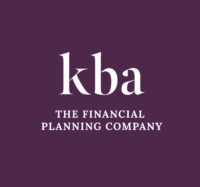£5.5 trillion is set to transfer from baby boomers to younger generations over the next 20 to 30 years. The global value of wealth set to change hands is vast, and most of it is expected to be transferred through inheritance or gifts.
According to Barclays, over the next decade, a total of £327 billion is estimated to transfer to 300,000 younger people in the UK from their parents and grandparents.
Dubbed “the great wealth transfer”, this mass migration of assets means that it’s more important than ever that younger generations are prepared.
Read on to find out how you and your family can make sure you’re ready for a smooth transition.
People lack knowledge about inheritance planning and tax rules
According to a report from Professional Adviser, a YouGov survey revealed that although 60% of baby boomers intended to leave money to the next generation, 18% of participants admitted that they lacked knowledge surrounding inheritance planning and tax rules.
The study found that many people also said that they didn’t know where to start or how much they would need to live on themselves. This, of course, causes difficulties in understanding how much it’s possible to give away while they are still alive.
Without a structured plan for transferring wealth, there’s more chance of creating unnecessary risks. You may also miss opportunities to maximise the amount of money you transfer before it’s eroded by Inheritance Tax (IHT).
Talking about money is hard to do
Professional Adviser also revealed that 41% of millennials (people between the ages of 26 to 41) and Generation X (people between the ages of 42 to 57) said they felt “uncomfortable” discussing inheritance and wealth transfer with their parents.
In fact, only a little over half of baby boomers have discussed inheritance or gifting with their families. 42% had yet to make any move to open the conversation. Meanwhile, 37% said they couldn’t imagine such a discussion ever taking place.
For some, money remains a taboo subject that isn’t discussed – even between close family members.
The problem with this, when it comes to inheritance planning, is that people tend to vastly overestimate the amount they hope to receive.
In fact, according to MoneyAge, the average UK adult expects to receive more than £130,000 in inheritance – yet, figures from the Office for National Statistics (ONS) show that the median inheritance is typically around £50,000.
Keeping your beneficiaries in the dark could lead them to have unrealistically high expectations. This could cause them to overspend on their current income. Worse still, it could create family arguments and fractured relationships down the line.
And aligning expectations is just one reason why it’s a good idea to talk about family money and potential future inheritance.
Organising your estate planning early could help to mitigate IHT
Discussing plans as a family and considering appropriate steps to organise your estate plan could help to mitigate a potential IHT bill.
For example, giving gifts within the annual exemption amount while you’re still alive or establishing trusts for children or grandchildren could make a difference to the value of your estate before you pass away.
In this way, it may be possible to help your beneficiaries reduce or entirely avoid having to pay an IHT bill on their inheritance.
Aligning your goals as a family can help you to transfer wealth to younger generations more efficiently
If you and your family have opposing goals, dreams, and ideals about your money, it could make it harder to create a suitable plan for transferring your wealth in the most efficient and beneficial way.
We can help to mediate key conversations between you and your family, to make sure you are on the same page and help you create a positive vision for your future.
Good estate planning is essential if you want to pass your wealth on to younger generations and avoid the risks of your legacy being eroded by tax.
We will help balance the money you need to look after yourself, with the desire to help your family and advise you on ways to manage and reduce IHT, including:
- Making gifts
- Establishing trusts
- Bestowing your pension and using other assets to provide a retirement income
- Taking out a life insurance policy to cover an IHT bill
- Charitable giving while you’re still alive, and in your will.
Ultimately, estate planning isn’t only about planning for your death, it’s also about enjoying life now and ensuring you have enough to live on. And this is why planning early is so important.
We will use cashflow modelling software to show you how much money you will need, help you to pass on assets in the most effective way, and work with you to reduce or manage an IHT bill.
Get in touch
If you’re concerned about how to protect your legacy and want to learn more about how we can help ensure your family wealth passes safely to the next generation, please get in touch.
Email contactme@kbafinancial.com or call us on 01942 889 883.
Please note
This blog is for general information only and does not constitute advice. The information is aimed at retail clients only.
HM Revenue and Customs practice and the law relating to taxation are complex and subject to individual circumstances and changes which cannot be foreseen.
Trusts, Estate Planning and Tax Planning are not regulated by the Financial Conduct Authority.
Approved by The Openwork Partnership on 26 June 2023.


